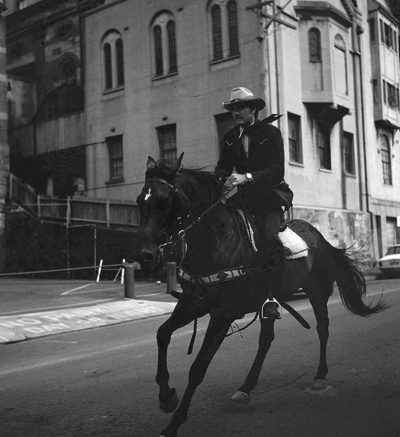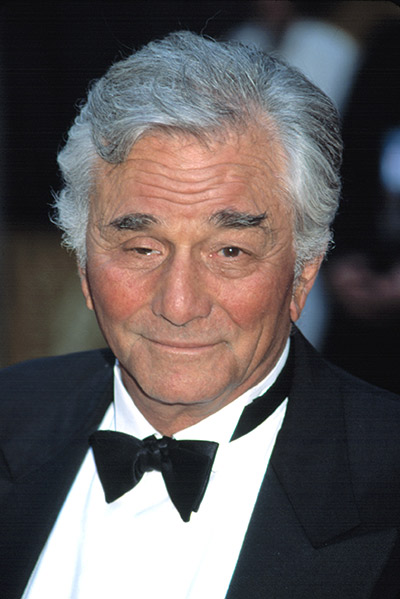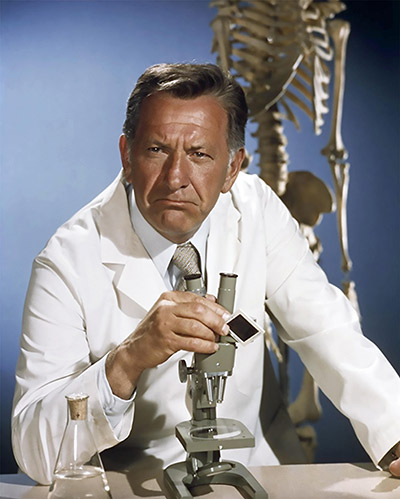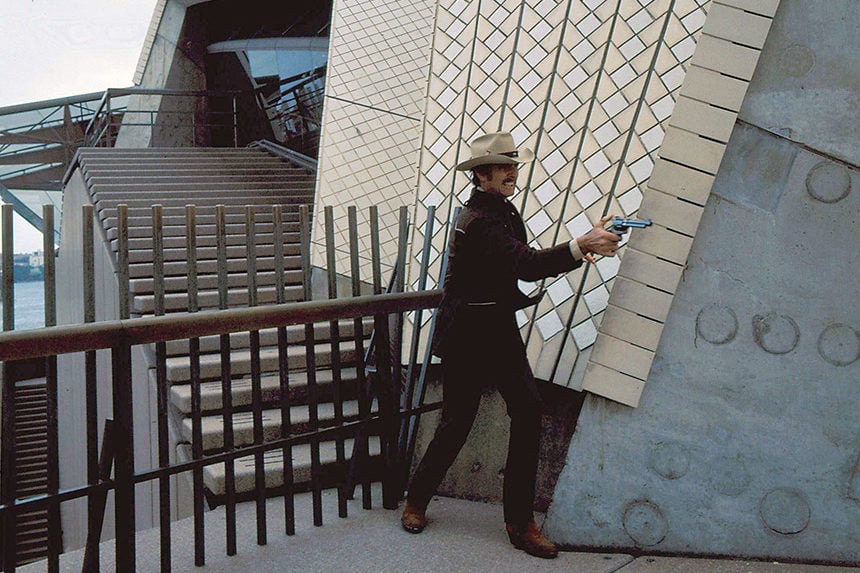Some actors’ lives are just as colorful off-screen as on. Take Dennis Weaver, who was a Navy fighter pilot in World War II, an Olympic hopeful in decathlon, and an environmental activist. In front of the camera, he starred in Steven Spielberg’s first film, did nine years as sidekick Chester on Gunsmoke, and helped usher the cowboy hero into 1970s New York 50 years ago this week with McCloud. That fish-out-of-water cop show didn’t just lay the groundwork for later shows like Due North and Justified; it helped pioneer a format that allowed the network to introduce multiple shows in one timeslot, a plan that would usher in more than one TV classic.

McCloud debuted with a TV movie pilot on February 17, 1970. The premise had Deputy Marshal Sam McCloud (Weaver) escort a prisoner from his normal base in New Mexico to New York City. McCloud would be embroiled in solving a murder case, and thereafter end up on loan to the NYPD as a special investigator. That basic plot had its roots in the 1968 Clint Eastwood film, Coogan’s Bluff; Herman Miller, who wrote the story for Bluff, is credited as McCloud’s creator. Response to the pilot was strong enough that McCloud was selected as one of four programs for NBC’s Four in One.
The Four in One concept put four different shows in one timeslot as part of a “wheel” of programming. This was similar to other NBC “wheels” like The Name of the Game (which had three rotating stars) and The Bold Ones (which was built around four profession-based procedurals). McCloud was first at-bat, running six episodes through September and October of 1970. New series San Francisco International Airport was next, followed by Rod Serling’s successor to The Twilight Zone, Night Gallery, with The Psychiatrist taking the fourth slot. Like McCloud, Night Gallery had a well-received pilot before joining the rotation; those two series were chosen to continue after the Four in One experiment, while SFIA and The Psychiatrist were cancelled. Gallery went on to its own solo slot, while McCloud joined another wheel.

This new wheel, The NBC Mystery Movies, would become the home for other iconic shows. In addition to McCloud, the first season included Columbo (which had been tested in a 1968 TV movie) and McMillan & Wife. The setup turned out to be a strong draw for the network, with all three shows running several seasons. The network liked the concept enough to add a second mystery movie night on the schedule, Wednesdays; of those various series, the breakout hit was Quincy, M.E., which eventually spun off into its own one-hour slot for many years.
McCloud itself lasted seven seasons, though the total episode count is lower than a typical series because of the movie format. Weaver and other members of the cast reunited for The Return of Sam McCloud, a 1989 TV film. Weaver continued acting for the rest of his life, and was a regular on the ABC Family series Wildfire just prior to his death in 2006.

While it’s not an official brand on today’s networks, the wheel concept is still in effect in subtle ways. ABC did directly revive the concept in 1989, going so far as to bring back Columbo. A more modern take would be how a number of reality-competition series share timeslots or dovetail their runs, such as The Bachelor and The Bachelorette or Survivor and Big Brother. Other similar ideas include devoting one entire night of programming to related shows, such as NBC’s “One Chicago” concept, where Wednesday nights feature three shows (Chicago Med, Chicago Fire, Chicago P.D.) set in the same fictional universe. Another influence is the idea of putting more capital into smaller numbers of episodes, a practice also influenced by British TV and adopted at pay-networks and streaming platforms to great success. McCloud may have been an old-fashioned western in modern clothes, but it ushered in a new way of thinking about television.
Featured image : Copyright © Globe Photos/ZUMAPRESS.com / Alamy
Become a Saturday Evening Post member and enjoy unlimited access. Subscribe now




Comments
This was such an insightful read! McCloud’s innovative approach to storytelling truly transformed the way we view TV. It’s fascinating to see how he made complex ideas accessible and engaging for a broader audience. I loved the examples you shared – they really highlighted his genius!